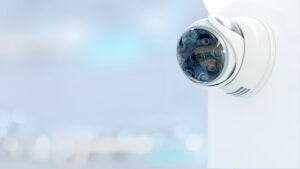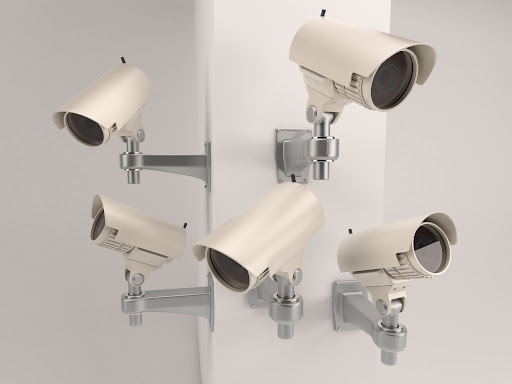Installing surveillance cameras in your home is a wise decision for various reasons, including deterring crime, offering solid evidence in court, lowering insurance costs, and more. Technology developments have resulted in significant improvements in video camera quality, recording capabilities, and, most crucially, cost. Furthermore, now that numerous types of surveillance cameras are available, you need to be aware of some factors to help you decide which system will work best for you.
#1 Resolution: The higher the resolution, the better the quality. However, this also means that you will need more storage to record footage in the long run. The leading CCTV cameras currently generate footage with resolutions of 720p (1MP) and 1080p (1080p). For most individuals, full HD is sufficient, but if you want to zoom in on a person’s face or license plate, go for super or ultra HD plus an 8x or 12x digital zoom lens.
#2 Alerts: Some cameras have CCTV motion alerts that can provide you with video clips or pictures of what’s going on in front of your cameras in real-time. All or selected cameras can generate notifications. However, individual cameras can also be targeted if you only want video clips supplied from inside cameras instead of exterior cameras.
#3 Audio: Your CCTV system has the ability to record sound. Most of these devices include built-in microphones or an input for an external microphone. You can also opt for two-way audio features. This excellent addition will allow you to chat with anyone on your property through the video.
#4 Storage: The vast majority of security camera footage is stored for 30 to 90 days. Moreover, some cameras can save their footage to the cloud or via the internet. For some, local storage on a microSD card in the camera or a separate linked hard drive is also an option.
#5 Privacy benefits: Some cameras can also allow you to turn the device off when you enter the home and turn it back on when you leave. This will generate complete privacy when you are in the comforts of your home.
#6 Motion sensors: If you are looking for a high-quality security system to safeguard your home or workplace, purchasing a CCTV camera with motion and audio sensors is a good investment. These devices can precisely detect odd sounds and movements and send a notification to their owners via their mobile app. In return, your response to any threat in your home or property will become almost immediate.

#7 Night vision: If you plan to record continuously for 24 hours, you will need cameras that can catch photos in low-light conditions. Typically, cameras are unable to capture footage from far distances at night time compared to during the day. Thus, you need to purchase devices that have a broad range of night vision.
On the other hand, it is preferable to use a camera with infrared light in completely dark regions. This type of light is usually built within the gadget and provides adequate luminance for the camera to capture photos.
#8 Field of view: Generally, the focal length of the lens and the size of the image sensor will determine the maximum range of a CCTV camera. If you purchase devices with greater field view, you will only need to install fewer cameras. In this case, it will be ideal to have a field view of 130 to 180 degrees. Furthermore, to have the best footage, the range of a CCTV camera should be at least 20 to 25 meters.
#9 Ease of installation: The location and mounting of CCTV cameras can help determine how easy they are to install. Overall, since there are no wires involved, wireless CCTV cameras are the easiest to install and set up. On the other hand, you will need to undergo numerous procedures to install a wired security system successfully.
#10 Connectivity: There are mainly two types of surveillance cameras in terms of connectivity. Wired cameras are more affordable. These devices are connected through coax cables to Digital Video Recorder (DVRs). Moreover, wired CCTV cameras are known to be more reliable.
On the other hand, in terms of mobility and scalability, wireless cameras offer more advantages. They are also easier to install compared to wired cameras. However, these devices are generally more expensive.
#11 Location: Since security breaches may occur both indoors and outside, it is crucial to think about where you are going to install your security camera. Most cameras can only rotate and zoom to a certain extent. Thus, home security cameras, like door and window sensors, should be put at numerous locations across your home.
#12 Additional features:
As you can already tell, these devices have a lot to offer. The following are just several features you can add for better benefits and advantages.
- Rain resistance: Indoor cameras are not protected from the elements, such as wind, rain, or even heat. Upgrading to an outdoor-rated camera will provide the most satisfactory protection and will be more likely to resist the weather.
- Adjustability: Some CCTV cameras only cover fixed areas. If you aim to perform zooms and monitor other angles, choosing a security camera with adjustable features is better.
- Power source: These devices can get their power either from sockets or batteries. Specifically, non-rechargeable batteries, rechargeable batteries, and solar energy are all possible options for powering CCTV cameras.
The business selling you surveillance cameras could ask you a few questions to figure out which device would be ideal for you. Therefore, you must consider the above elements to assist you in making the best option that will cater to your needs.

